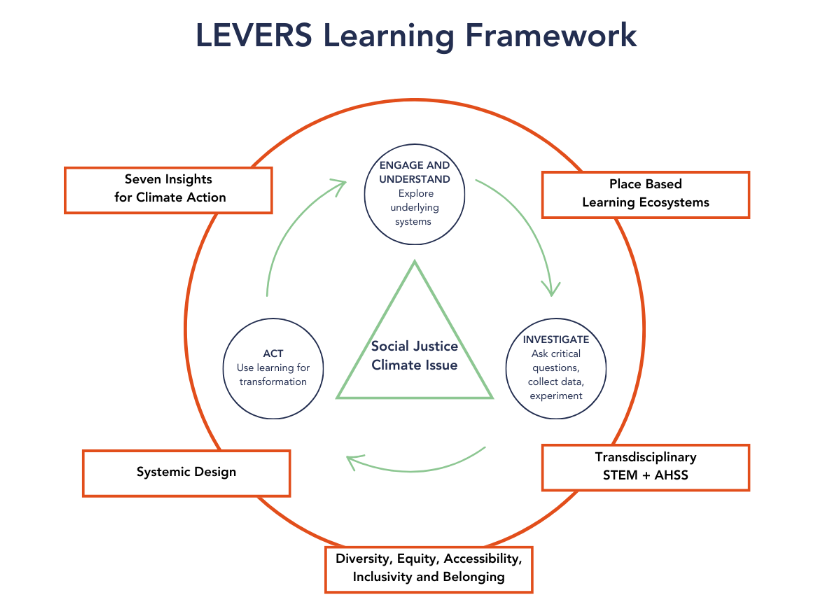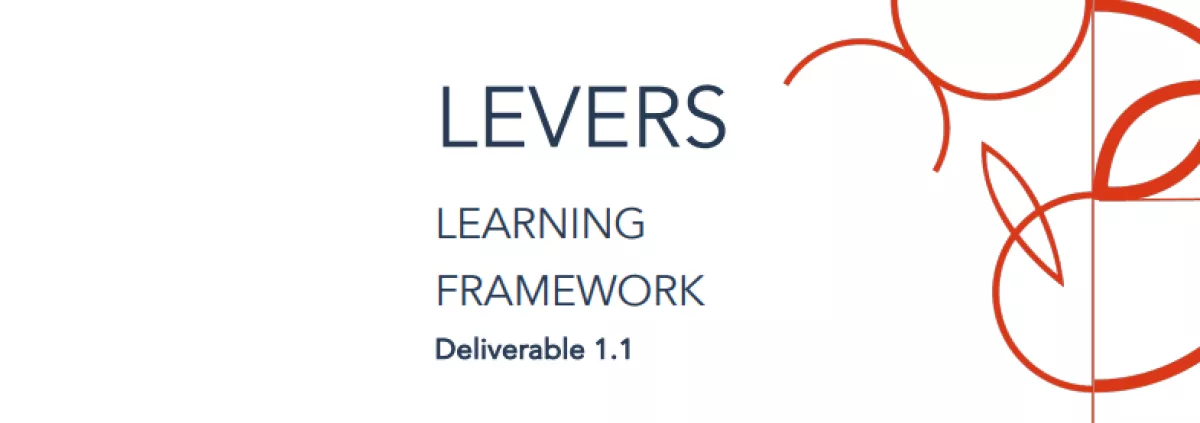The LEVERS project (2023-2026) promotes open schooling for innovative science education, with a specific focus on lifelong learning for climate and environmental justice. The project investigates the potential of localised learning ecosystems to support community climate responses in nine countries: Ireland, the UK, Portugal, Belgium, Switzerland, Slovenia, Serbia, Greece, and Cyprus. We are researching the implementation of a transdisciplinary, lifelong-learning approach to science education in these diverse settings across Europe, addressing the complex challenge of the climate and environmental crisis.
We believe in partnerships and stakeholder involvement to design meaningful learning and to create a pathway to effective climate responses. We recognise the need for new and different approaches to take action to address local climate issues, while being mindful of inequality, and the social justice aspect of the climate crisis. LEVERS believes in cooperation, learning together and future-making for a just, liveable and sustainable planet.
The LEVERS Learning Framework is a foundational document for the LEVERS project, providing the building blocks for the design commitments and pedagogical approaches to be embedded in the learning activities to be undertaken by project partners across Europe. It is Deliverable 1.1 of the LEVERS project.
This text aims to be a guide and companion, a source of inspiration and hope for those embarking on journeys that recognise the role that science education has to play in the collective movement towards regenerative, thriving and joyful futures for all terrestrials, human and otherwise.
It does not aim to provide rigid guides for science curricula or training for teachers. Rather, as a mix of theory and practical examples, it provides a starting point for collaborative planning and learning design, highlighting the importance of social justice and equity work in addressing the climate crisis. It calls attention to some of the myriad factors that must be addressed to achieve effective learning for climate action. It reminds us that learning is lifelong, especially in these strange times, and posits that learning creatively in communities is an effective way to foster transformative agency and meaningful change.
It is structured into four foundational learning units. Chapter 2: Systems of Climate (In)Justice orients our journey around climate change and sustainability. Chapter 3: Tools for Transformation introduces systemic design, the Seven Insights for climate action, and participatory methodologies for stakeholder and learner engagement. The focus in Chapter 4 is on Attending to Equity and covers equitable practices in science education and communication, and ways that critical pedagogies can address issues of social justice. Chapter 5 outlines some of the proposed Settings for Regenerative Learning in the context of the LEVERS project. Finally, Chapter 6: Project-Based Learning for Climate Justice brings it all together and proposes LEVERS own Learning Framework as a scaffold for applying the concepts from the above chapters in practice.

LEVERS Learning Framework. Outer wheel represents ongoing commitments throughout the project-based learning cycle, while inner sections are sequential, beginning with ENGAGE & UNDERSTAND, followed by INVESTIGATE and ACT. (Figure 6.7 in this document)
More informations about the European LEVERS project on this website: https://leversforclimate.eu
